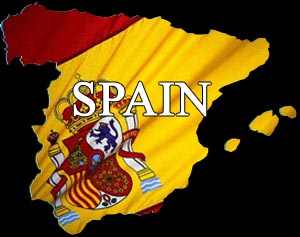Political changes loom in Spain's Basque region
 Madrid - Political changes were looming Friday in Spain's troubled Basque region as it appeared increasingly certain to get its first government defending its unity with Spain.
Madrid - Political changes were looming Friday in Spain's troubled Basque region as it appeared increasingly certain to get its first government defending its unity with Spain.
Two mainstream Spanish parties, Prime Minister Jose Luis Rodriguez Zapatero's socialists and the conservative People's Party (PP), agreed on Thursday that a conservative would head the Basque parliament following the March 1 regional elections.
That was expected to pave the way for Basque socialist leader Patxi Lopez to become regional prime minister in May.
Lopez would oust the Basque Nationalist Party (PNV) from power for the first time since the region was granted a wide autonomy in 1979 following the death of dictator Francisco Franco four years earlier.
The PNV would like to loosen the region's ties to Spain, while the socialists and conservatives want to stamp out separatist strivings.
Together, the socialists and the PP have an absolute majority in the 75-member regional parliament, though the PNV took the most votes in the elections.
Lopez was expected to head a minority government with the unofficial support of the PP.
A non-nationalist government was expected to toughen the fight against the militant Basque separatist group ETA, abolishing subsidies which the PNV government granted to family members of imprisoned ETA activists.
The subsidies had made it easier for the family members to visit ETA prisoners in jails located far away from the Basque region.
The new government was also expected to make it easier for schoolchildren to study only in Spanish if they chose to, instead of having to learn Basque as well.
The socialists were, however, keener to extend the self-government of the Basque region than the PP was.
Lopez has pledged to unite the Basques, who are divided between nationalists and non-nationalists.
ETA, which is classified as a terrorist organization by the European Union and the United States, has killed more than 820 people in its campaign for a sovereign Basque state since 1968. (dpa)